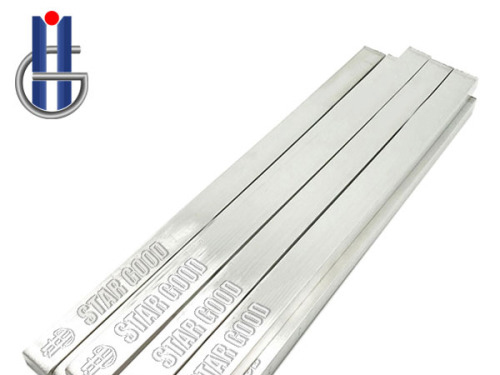Tin Ingot: Production Process and Diverse Applications
Tin ingots play a crucial role in various industries, serving as essential materials for manufacturing processes and applications. Understanding the production process and applications of tin ingots sheds light on their significance in modern engineering and commerce.
The production of tin ingots begins with the extraction of tin ore from mines or deposits. Tin ore is typically extracted through mining processes, after which it undergoes beneficiation to remove impurities and increase tin content. The refined tin ore is then smelted in furnaces to produce molten tin, which is poured into molds to form ingots.
Tin ingots are valued for their properties such as malleability, ductility, and corrosion resistance. These properties make them suitable for a wide range of applications across industries. In the electronics industry, tin ingots are used for soldering electronic components onto circuit boards, ensuring reliable electrical connections.
Moreover, tin ingots find applications in the manufacturing of alloys, such as bronze and solder alloys. Bronze, a copper-tin alloy, is known for its strength, durability, and resistance to corrosion, making it valuable in the production of statues, sculptures, and musical instruments.
In the food packaging industry, tin ingots are utilized for producing tin-plated steel cans and containers. Tin-plated cans provide a protective barrier against corrosion and contamination, extending the shelf life of food products and ensuring food safety.
Additionally, tin ingots are used in the production of tinplate, a thin sheet of steel coated with a layer of tin. Tinplate is commonly used for packaging food and beverages, as well as for manufacturing metal cans, containers, and closures.
Furthermore, tin ingots have applications in the automotive sector, where they are used for coating automotive parts to enhance corrosion resistance and aesthetics. Tin coatings on automotive components such as bolts, nuts, and fasteners improve their durability and appearance.
In conclusion, tin ingots are versatile materials with diverse applications in electronics, alloy production, food packaging, automotive coatings, and more. The production process of tin ingots and their properties make them indispensable in various industries, contributing to technological advancements, product innovation, and economic growth.

 Lead Bar for Sale: Uses, Specifications, and Buying Considerations
Lead Bar for Sale: Uses, Specifications, and Buying Considerations
 Exploring the Versatile World of Tin Wire Products: A Comprehensive Overview
Exploring the Versatile World of Tin Wire Products: A Comprehensive Overview
 Exploring the Uses and Advantages of Pure Tin Bars
Exploring the Uses and Advantages of Pure Tin Bars